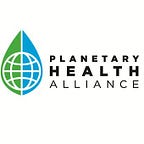Undergraduate Course on Climate Change, Law & Health
Warren G. Lavey and Holly A. Rosencranz University of Illinois at Urbana-Champaign lavey@illinois.edu and harosen@illinois.edu
Five undergraduate students walk into a classroom (in person or virtually):
(1) a sophomore majoring in education who cares about climate change but expects that her education courses will not address this topic;
(2) a senior majoring in civil engineering whose professors discuss preparing infrastructure for extreme weather events and rising sea levels without mentioning any health impacts of climate change;
(3) a senior involved in several campus sustainability efforts who signs petitions but does not engage in other actions aimed at governments;
(4) a senior majoring in chemical engineering who recalls hurricane/flooding stories from relatives in South Carolina but no climate-related impacts in Illinois; and
(5) a senior majoring in music and Spanish who is concerned about the welfare of migrants.
No, this is not the set-up to a joke. What do they all have in common?
These and other students are enrolled in an innovative Climate Change, Law & Health course at the University of Illinois at Urbana-Champaign. This course is open to undergraduates across the university through the Campus Honors Program, and attempts to address two of the greatest challenges facing undergraduate education.
First, students in all majors should study climate change — impacts, mitigation, adaptation, and resiliency. Climate change entails risks and opportunities for all aspects of life, all careers, and all communities. The class analyzes the design and effectiveness of climate-related policies, laws, regulations, plans, and programs. Second, college students must use their voices, energies, skills, and knowledge to help all societies adopt and implement sustainable development goals and strategies.
For their final project in this course, students advocate for or against proposed climate-related state laws which they select. Each student has a personal meeting with a member of the Illinois General Assembly. The student gives a six-minute oral advocacy presentation on the legislation, responds to questions, provides an engaging short factsheet, and writes a briefing paper.
Students develop a better understanding of the risks and challenges climate change poses through a series of real-life simulations and projects. For example, one early assignment tasks small groups to design an evacuation plan for a hypothetical city in California where wildfires are rapidly approaching. In doing so, they must consider questions like: How can I safely evacuate citizens during a pandemic? How can I move vulnerable populations, especially those with additional mobility challenges? What mitigation steps are required in the future to reduce the likelihood of this happening again?
Two faculty from the Colleges of Law and Medicine co-teach this course, with fourteen guest presenters including three Illinois State Senators (from both parties) and senior officials from the state Environmental Protection Agency and Attorney General’s office. The syllabus is linked here.
Regarding the five students mentioned above, our hopes for each of them are as follows:
Student 1: This education major will view her career and professional skills as integrally bound to climate change, in curriculum, other student activities, the operation of schools, and communicating with communities and leaders;
Student 2: This civil engineer will think about climate change as a health emergency and help communities build health into their designs;
Student 3: This environmental activist will gain the confidence and skills to work on influencing government actions;
Student 4: This student will recognize that the impacts of climate change are here and now in every community around the world, affecting health and livelihoods for all families; and
Student 5: This student will learn about the many dimensions of climate justice and take her concerns about disadvantaged people to influence public policies.
